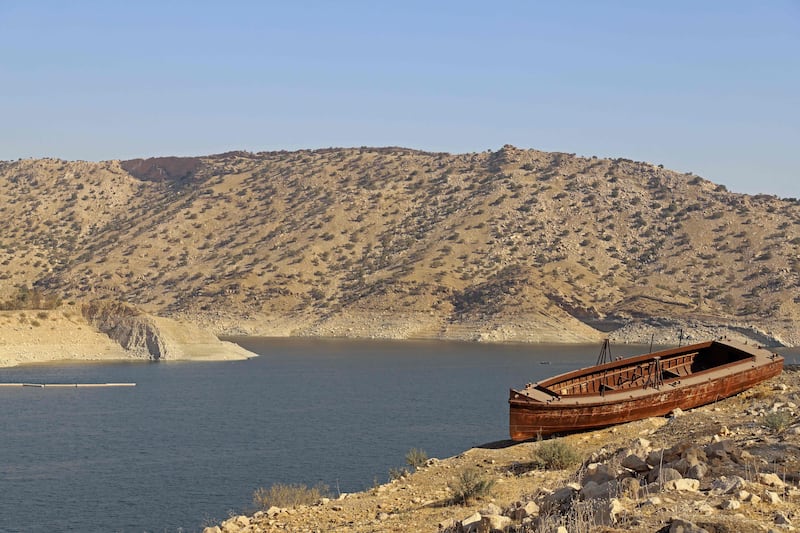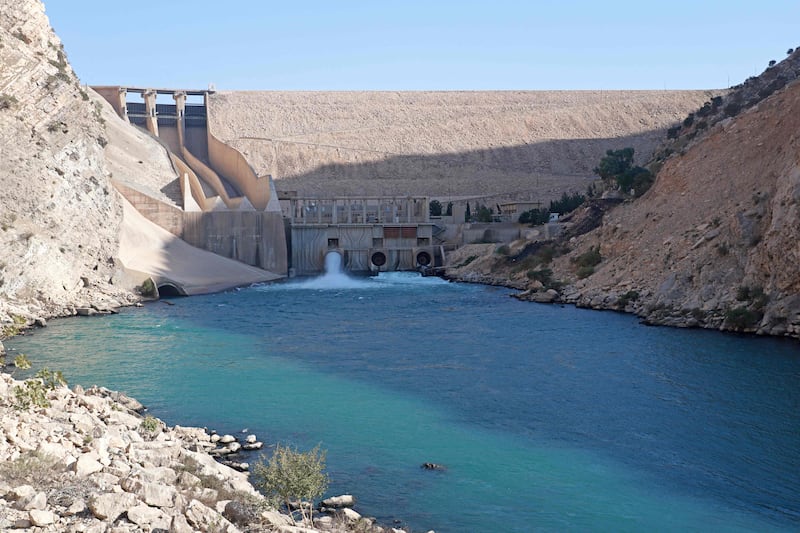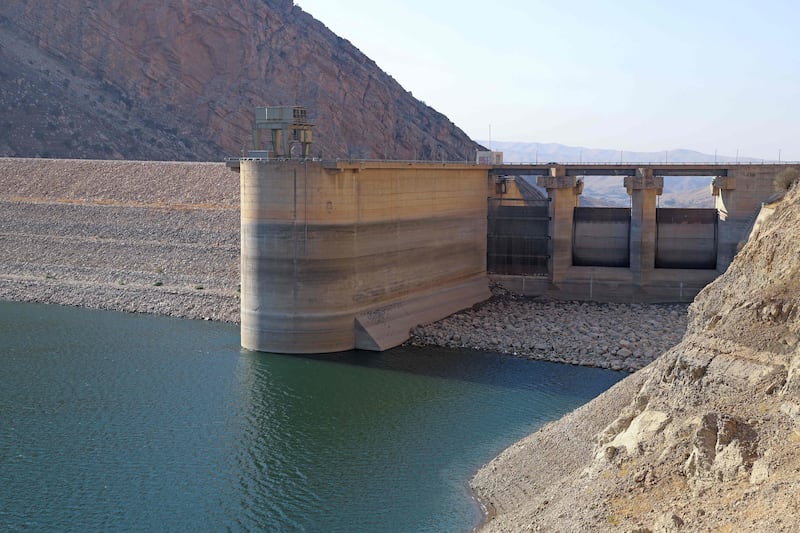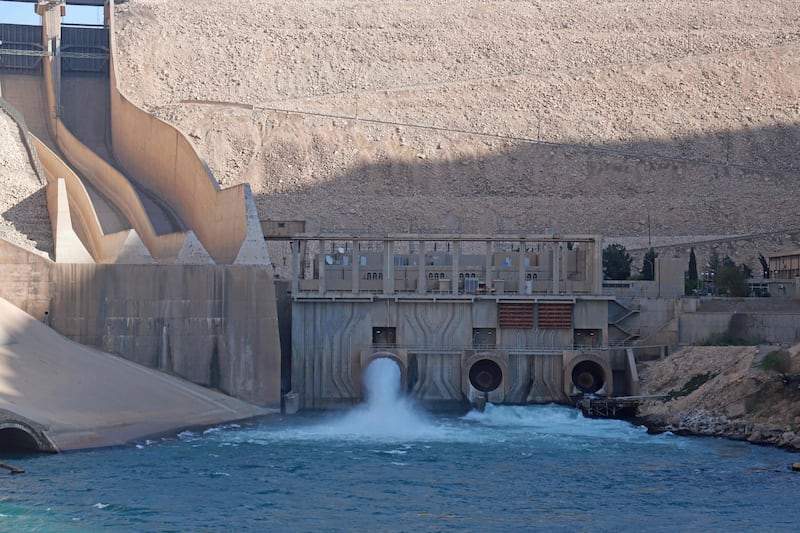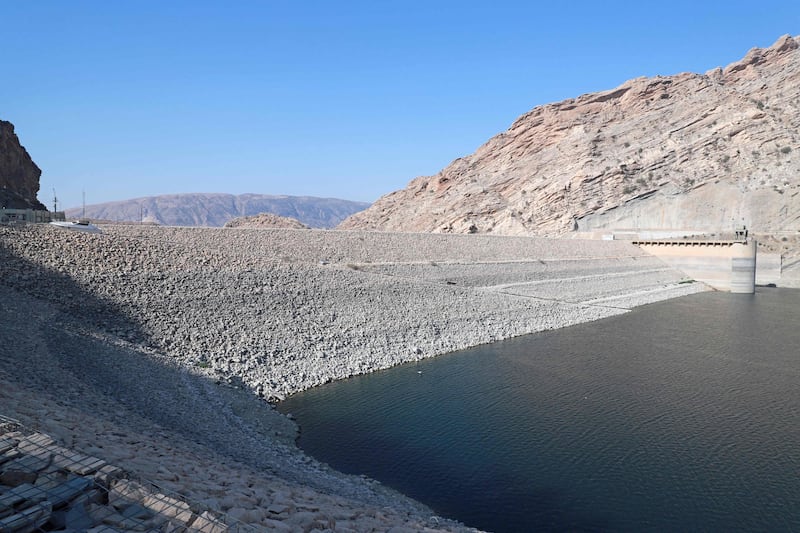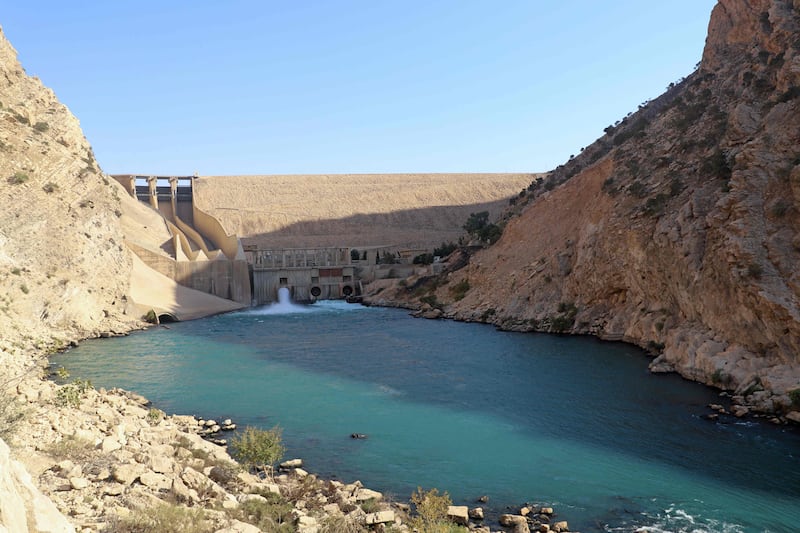Iraq's Tigris and Euphrates rivers could run dry by 2040 because of declining water levels and climate change, a government report said on Thursday.
Over the years, the construction of dams in upstream Turkey, Syria and Iran has choked off some of the flow of the Tigris and Euphrates on which Iraq depends.
Climate change is contributing to temperatures increases and erratic rainfall, pushing the fear of water shortages in Iraq to new levels, it said.
“The rate of decline in water imports to Iraq has begun gradually and will decrease to 30 per cent by 2035,” the Ministry of Water Resources said.
The country’s water inflows during the summer are estimated to be about 40 billion cubic metres. A decrease in supply to 30 per cent of normal levels will result in Iraq receiving 11 billion cubic metres annually, the report said.
Iraq’s water consumption needs amount to 53 billion cubic metres annually, which means the deficit will increase to 80 per cent.
The country has been known as the land between the two rivers since the dawn of civilisation.
But the majority of the Iraq's water supply either originates from or passes through neighbouring states, which have limited its supplies over the years.
It has affected Iraq's agriculture and increased water pollution in most areas of the country.
Iraq’s growing population, mismanagement of water and climate change are also affecting Iraqis’ access to water.
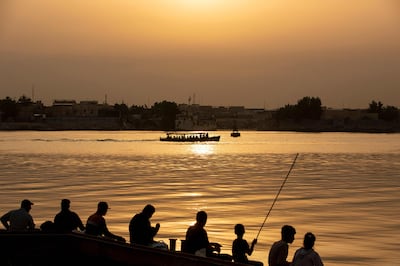
Severe droughts will affect the country by 2025, the report said, with the Euphrates almost completely drying up towards the south, and the Tigris turning into a watercourse with limited resources.
“A strategic plan made by the Ministry of Water Resources identified measures to confront this deficit, which is the modernising and readjusting irrigation projects and systems, because the main consumer of water in Iraq is the agricultural sector,” said Aoun Diab, a ministry consultant.
The project must be implemented to “save and rationalise large amounts of water".
The cost of the project will amount to $50 billion to $70bn, which will take up to 2035 to complete to preserve the areas currently being cultivated, Mr Diab said.
However, the ministry does not have the financial resources to carry out this project, so a review will address the issue, he said.
Forced to leave ancestral lands
Last week, Minister of Water Resources Mahdi Rashid Al Hamdani predicted water shortages in the coming months, especially in the eastern province of Wasit.
Reports show that residents of several villages are preparing to move away from their ancestral lands because of the water scarcity and the unviability of the farms on which they depend.
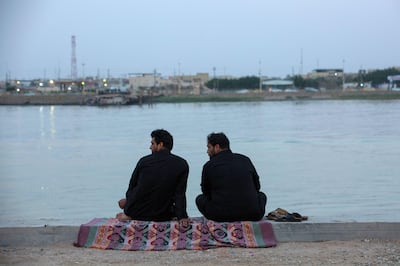
“The impacts in Wasit have affected other governorates, such as the southern cities of Maysan, Dhi Qar and Basra,” Mr Al Hamdani said.
The “crisis of water scarcity is not to be dealt with by the ministry alone, but rather the whole country”, he said.
“Transgression has begun to appear again, and the largest of it is in Wasit, because it represents a crossroads for the flow of the Tigris River. Any transgression that occurs has a tangible impact and is reflected on Dhi Qar, Maysan and Basra,” he said.
The World Bank had warned Iraq that the water would not reach a third of the irrigated lands in 2050, if the temperature rose by 1ºC, as expected.
Iraq's government is currently dealing with political upheaval, security challenges, an economic crisis and disputes with neighbouring states, which have taken up most of its attention and resources.
Iraq is pushing Turkey and Iran for an agreement that guarantees its fair share of water, but no progress has been made.
